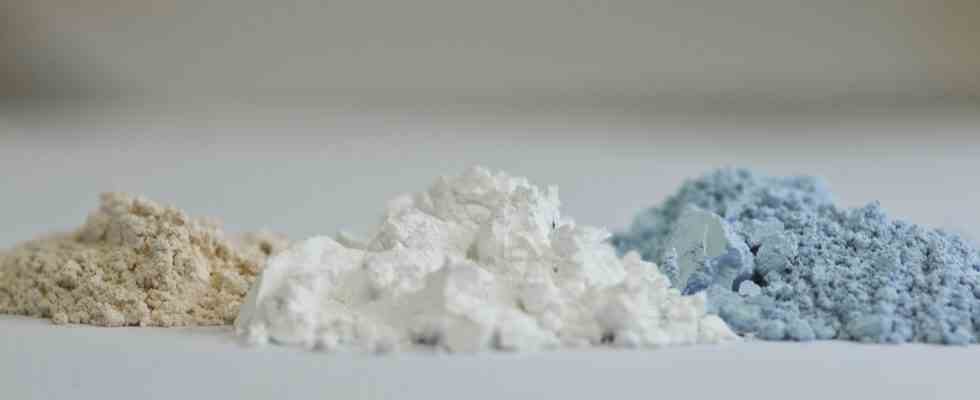Status: 01/13/2023 4:35 p.m
While Sweden enthusiastically announces the discovery of rare earths, Spain is keeping a low profile. It has long been known that there are similar mineral resources there. Deposits are not used – a mining project stopped.
It would actually be quite simple: In Galicia, the rare earths are practically on the street – more precisely, on heaps. The Aridos de Mendo company extracts sand and stones directly on the Miño, the river bordering Portugal. The light-colored sand is used in cement production and road construction. The dark sand has been dumped for five years.
There are interesting minerals in them, says Maria Modino, who is responsible for quality assurance in the company. “Zircon for optical instruments, ilmenite containing titanium, cassiterite a tin ore,” she lists. “And monazite, which contains several of the important rare earth elements.”
Aridos de Mendo in Galicia mines 50 tons per year. Extracting the rare earths from the minerals is complex and expensive. And so far the company has not found a buyer for the material that is on the heap.
Dismantling project stopped by court
Around Ciudad Real, in the south-west of the Spanish Meseta, a mining company wanted to really push hard to get the rare earths out of the ground there. More than 200 tons of material per hour should be plowed through there on monazite. Environmentalists went on the barricades and said no to the mine.
Courts stopped the project. The mining would have endangered the habitat of the Iberian lynx, which – funded with EU millions – was resettled in the region. Local people were more afraid of radioactive dust. “The rare earths are chemically related to radioactive elements and are often contaminated with them, especially thorium,” says Ricardo Prego of Spain’s largest public research body, CSIC.
Reason for obstacle: environmental protection and tourism
A serious problem – but a solvable one. But that is time-consuming and expensive. It would also be time-consuming and expensive to extract the deposits from the volcanic rock on the Canary Islands. On the topics of radioactivity and biotope protection, tourists could feel disturbed by the mines, factories, excavators and noise.
A relatively new idea is to get layers of rock containing monazite from the seabed off the Canary Islands. With a stone crusher, which crushes and mines crusts that are relatively close to the water surface. But fine material creates a kind of mud cloud that eventually settles, says Egidio Marino from the Spanish Institute of Geology and Mineralogy. “Both the mining itself and the sediment destroy habitat for sea creatures.”
“We are in a dilemma,” says Lucia Caudet from the EU Commission – not to mention potential blackmail by producing countries outside the EU. “We need an open debate without taboos as to whether we really want to continue importing material obtained under dubious conditions so that it doesn’t happen here.”
Rarely mined: Spain’s treasure of rare earths
Reinhard Spiegelhauer, ARD Madrid, 13.1.2023 3:26 p.m

